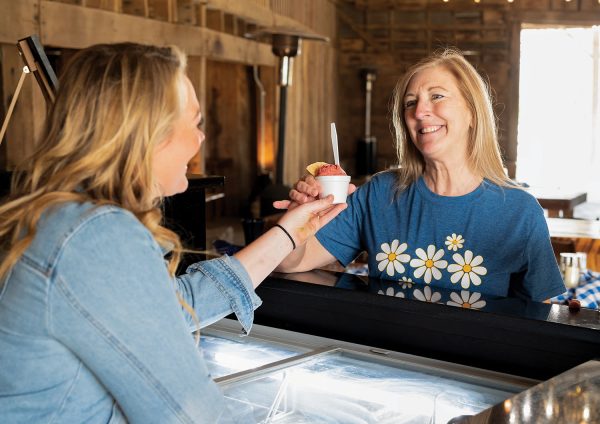COLUMN: The case for cash
September 14, 2010
I met him when I was 16, and we’ve been together since. On the surface, he seems great. He’s taken me on countless dinners, trips to Austin, Chicago and a vacation in Florida, and he even supports my affinity for buying clothing and accessories. But at 21, I realized that he is an enabler, and our relationship is slowly but surely depleting my bank account.
He, in this case, is my debit card, and while we’re not breaking up, I do think it’s time we take a break.
I’ve been contemplating the benefits of making purchases with cash versus a debit card for a while. I believe it was inspired by a nearly $6 beer I bought at a local dive bar a couple weeks ago. My drink of choice (any Leinenkugel variety, in case you’re wondering) usually runs about $3.50. But if you only deal in debit card and don’t intend to open a tab because you really only want ONE beer, you’ll be paying a $2 service charge for that beer. Sure, that’s just $2, but I started wondering if my habit of not keeping cash could have a negative impact on my bank account.
So, I called the folks at the local Ameriprise Financial, a financial advising practice in Bowling Green, and they connected me with Associate Financial Adviser Adam Yates, who helped me weigh the pros and cons of debit card use.
Yates said one of the immediate benefits of using cash over a debit card is that you can’t overdraft your cash.
A lot of people don’t always keep track of how much money they have in their bank account, which can lead to overdrafting, he said.
I am one of those people. I just swipe my debit card to my heart’s content and try to forget about how ill I’ll feel when it comes time to check my account.
But debit cards aren’t without their attractive qualities. I should know; I’ve been pretty exclusive with mine for about 5 years.
Yates mentioned a couple of the debit card’s positive attributes: 1) If you lose your wallet, you can get your debit card canceled. If your wallet was full of cash, you can’t exactly cancel your cash. And 2) Many banks offer points or cash back for purchases made on a debit card. My bank, for example, offers cash back, gift cards and a list of other items in exchange for points.
But if you’re like me, you’re not going to keep a close watch on your debit card purchases. Yates has a solution for people like us.
It’s called the envelope system, and Yates recommends giving it a try if you’ve ever overdrafted your account or come dangerously close to it.
Here’s how it works: You pay for everything in cash. Look back at your bank statements, and see how much you’ve spent on different types of purchases, such as bills, meals and entertainment. Then, allot yourself a certain amount of cash for the different types of purchases based on what you’ve been spending.
Categorize your purchases in envelopes. For example, I might have envelopes that read, “rent,” “meals,” “gas” and, if we’re being honest, “Forever 21.”
Yates said it’s psychologically tougher to spend money when you’re dealing with cash. If you know you only have $10 left in your “meals” envelope this week, you probably won’t decide on an appetizer or dessert when you’re out to dinner.
I’m challenging myself to try the envelope system to see if it makes any difference. If money slips through your fingers like it does mine, I think you should give it a try too.
This isn’t goodbye, debit card. I just think it’s time to try something new. And for the record, it wasn’t you. It was me.













![Students cheer for Senator at Large Jaden Marshall after being announced as the Intercultural Student Engagement Center Senator for the 24th Senate on Wednesday, April 17 in the Senate Chamber in DSU. Ive done everything in my power, Ive said it 100 times, to be for the students, Marshall said. So, not only to win, but to hear that reaction for me by the other students is just something that shows people actually care about me [and] really support me.](https://wkuherald.com/wp-content/uploads/2024/04/jadenmarshall-1200x844.jpg)




![Megan Inman of Tennessee cries after embracing Drag performer and transgender advocate Jasmine St. James at the 9th Annual WKU Housing and Residence Life Drag Show at Knicely Conference Center on April 4, 2024. “[The community] was so warm and welcoming when I came out, if it wasn’t for the queens I wouldn’t be here,” Inman said.](https://wkuherald.com/wp-content/uploads/2024/04/smith_von_drag_3-600x419.jpg)






